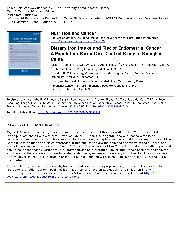摘要
Dietary red meat and animal fat have been linked to endometrial cancer (EC) risk, but the impact of bioavailable iron in animal-derived foods has been less well studied. Our objective was to investigate the effects of iron and fats on the risk of EC in a large, population-based, case-control study. The Shanghai Endometrial Cancer Study enrolled 1,204 EC cases and 1,212 controls who completed in-person interviews, including a food frequency questionnaire. Animal-derived iron and fat intakes were calculated from dietary intakes and food composition tables. Logistic regression models were used to evaluate independent and joint effects of iron and fat on EC risk. Animal-derived iron intake was positively associated with EC risk [adjusted OR = 1.9; 95% CI = 1.4-2.7, Ptrend 0.01, highest vs. lowest quartile], predominantly after menopause (OR = 2.2; 95%CI = 1.4-3.4, Ptrend 0.01) and in women with BMI epsilon 25 kg/m2(OR = 3.2; 95% CI = 1.4-7.5 in postmenopausal obese women, Ptrend 0.01). Animal-derived fat was also associated with postmenopausal EC risk (OR = 1.7; 95% CI = 1.2-2.5, Ptrend 0.01). Multiplicative interactions between animal-derived iron and BMI or animal-derived fat intake were not observed. Animal-derived iron intake is associated with increased risk of EC after menopause and among obese women. Avoidance of animal-derived (heme) iron may reduce the risk of EC in these women.
- 出版日期2010
- 单位上海市肿瘤研究所; 河北医科大学
